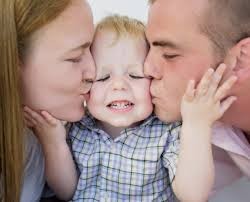A child needs praise. But can we praise without harm? This requires the most careful consideration by each senior. What does the praise of malicious?
1. Harmful if the child is praised for being given to him easily, for what he is given by nature itself. Praise is not for work, not for effort, but just for having the ability does not give anything that would really be necessary for a child to develop it. And it can harm, especially when it repeats. Repeating praise without need acts like a drug: the child gets used to it and waits for it. He is imbued with a sense of his superiority over others, and if he is not accustomed to work that realizes his abilities, he cannot take place as a person: egocentrism will completely close him to himself, he will go all out in anticipation of admiration and praise. Their termination will cause that chronic discomfort, from which jealousy, petty touchiness, jealousy to someone else's success, suspicion and other burdensome attributes of the egocentricity of the failed "genius" are born.

2. It is doubly harmful to praise the one to whom something is given easily, setting him as an example to those to whom this same is given hard, despite efforts. Cursing one and praising another, imposing it as an example to the first, they are opposed to each other. The very fact of an unfair assessment of effort, or rather, silence, ignoring it, seriously traumatizes the psyche of the child (and not only the child!). This reduces the motivation for action. And the opposition cannot cause the desire to "take an example" from someone who is unfairly praised. On the contrary, it only pushes them apart, oppressing one and corrupting the other. Opposition cultivates unhealthy rivalry, which is stimulated not by diligence, but by egocentric tendencies. The opposition can cause negativism, rejection of those activities that do not guarantee success.
3. Harmful, when praised too often, without any need and insincerity. This both depreciates praise, and accustoms to cheap success, and promotes a thoughtless attitude to what comes from the elders.
Watching the children, for their elders, you yourself will be able to see other harms of ill-considered praise.
How to praise? Only sincerely, seriously and convincingly. Let go of praise in doses commensurate with its purpose!
Why do I need to praise a child? In order to give him confidence, if it is not enough. Give strength. Recover lost emotional well-being. Compensate for damage caused by someone (any) ...

